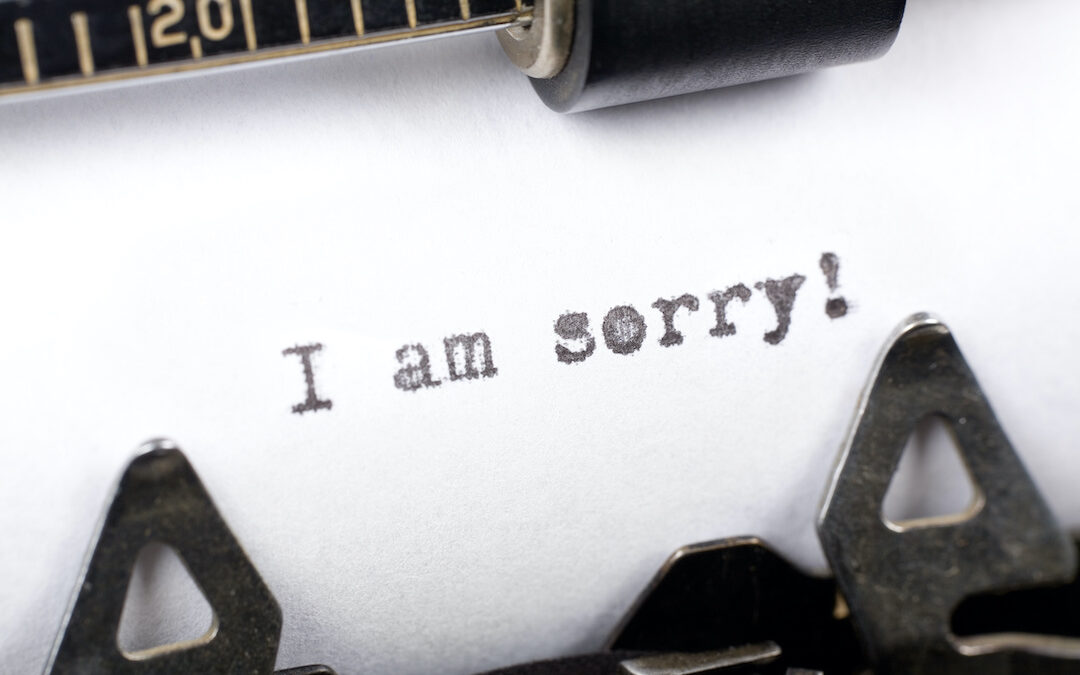I am sorry. Three words that can turn a relationship around.
My Dad died 10 years ago this month. To reflect on that milestone, I headed for the woods with our dogs on a mild winter morning.
Our relationship was strained for decades. We barely spoke for a decade. As I grew up, he was mostly absent — but not really gone. Yet, there were stretches and glimpses of the good, loving father he could be. I loved him. I missed him. And I had a lot to be angry about.
Over several years in my 20s, we rebuilt and made our peace — which is the signature personal story at the heart of this ever-growing collection of stories about seeking peace.
Here is another favorite story about a lovely Christmas visit soon after we reconciled: O Holy Night.
This one is about how unexpectedly helpful he was when he visited following my separation at 40 from my ex-husband: How One Tiny Home Repair Comforted a Broken Heart.
After we rebuilt, we had 15 years of a fairly healthy, father-daughter relationship before his death. Quirky because I could easily slip into the parent role. Healthy — and sometimes painfully honest — because we would say anything to each other.
Necessary, just not always pretty.
What now? Ten years after the end of an almost 65-year life of a charming, endearing and often infuriating man, what is there to say? After years of a “final” chapter of grief, what does it all come down to? The lesson?
Comfort on the Trail
I wondered about that while walking with our shelter mutts — a nosy beagle mix and our big, chestnut mix of lab-pit-boxer-and-maybe-something-else — on a favorite streamside trail below the tall hemlocks and tulip trees.
We went to my little “fortress of solitude,” a stone and wood picnic shelter built into the side of the ridge at our state park, where there is no cell or internet service. Free from interruption. I come here sometimes to sit and think, or write or work.
In this place, in my mind’s eye, I always see my stepsons shaking hands with my Dad.
Here, in 2012, my Dad and two stepsons met at our family picnic and had their only conversation. My Dad, sick from a chemo treatment just a few days before, willed himself to ride in the car for more than four hours each way to be there that day.
On the way to that chemo treatment, we’d had a blowup. A big, awful one that makes me wince when I recall it. We had patched it up — but I still wish it had not happened. He died five months later.
As the dogs and I walk the path this mild, January morning, crossing the road and looping back toward the lake, what keeps bubbling up in my mind is “I am sorry.” Perhaps that’s the most important lesson of our story.
“I am sorry” changed everything.
Standing my Ground
When I was 20 and home from college for the holidays, my mom cooked a special dinner for my Dad, my sister (technically half-sister as we have different moms, but we have always called each other “sister”) and I.
Hosting a special dinner was my mom’s way to take care of us. She wanted to be sure we saw our dad, who was divorced from both of our mothers, over the holidays.
I’d been away from home long enough to stand stronger, if not entirely yet, on my own two feet. I was finding my voice. That night at dinner, he pushed me too far and I pushed back, and stood my ground. We didn’t dig into the big, thorny stuff, just the smaller, inconsiderate things he would do like relentlessly tease and call late at night.
It was a start.
My sister, 10 then, watched with her big brown eyes, then calmly, softly agreed the late-night phone calls were not welcome. Could he please not call after 9 p.m.?
He could have blown up and stormed off. We’d all seen him do that before.
But he didn’t.
I’m sorry, he said. I’ll do better.
Turning Point
That started to change everything.
Reconciling took years. Maybe even much of the next decade. But we reached a peaceful place. In time, he apologized for the big things, too.
But the first step was “I am sorry” at that holiday dinner my mom had cooked. We would call that dinner the “dad bash dinner” and celebrated it every holiday season for about six years. He’d ask about it in November.
A sincere “I am sorry” in that moment meant he acknowledged my pain and hurt feelings and took me seriously — instead of talking louder over my distress or changing the subject. It was an expression of love. And it softened me.
“I am sorry” meant he regretted that he had hurt me — even if it was only a seemingly small thing like upsetting me before bed. Even if he had some unknown reason or explanation that justified the late-night call.
“I am sorry” opened the door, and kept me hopeful.
So now, I’m deep within writing an essay about that dinner and its turning point, and that took me to my first memory of being three years old and standing up to him — because writing takes you into places you needed to go that weren’t on the schedule.
I’m not quite back from that place, yet. And that piece isn’t quite ready yet. Soon.
How we Heal
Meanwhile … just about everyone I talk to has experienced estrangement on some level in their family. And everyone knows about the rocky patches in our relationships. We all mess up. We all make mistakes big and small.
I’m no expert or family therapist.
But I can tell you that “I am sorry” can change everything and start melting that icy wall. And if we want a relationship to be different, maybe we have to look hard at how we got to that broken place from the other person’s point of view and think about what we need to say “I’m sorry” for.
Then say it.
And mean it.
Thank you to my Dad for never giving up, for sticking around and — eventually — hearing me. For a sincere, powerful apology.
Me too. I am still sorry for my harsh words on the drive to chemo that awful summer morning, when we were both so scared. By the end of the day, we’d both apologized. Just two days later, he fought through the nausea to make the drive out to the first summer picnic my future husband and I hosted.
He saw the people and place I’d fallen in love with, and that day made a memory that all these years later, still brings me great comfort.


Oh Lisa, this writing made me miss my father even more. We had a good relationship but I lost him when I was 33 – and I am now 76. Having lost my mother when I was only 20, he was my rock. It never gets easier.
Oh Beverly. What a young age to have lost both parents. Awful. I am so sorry. Thank you for sharing that.